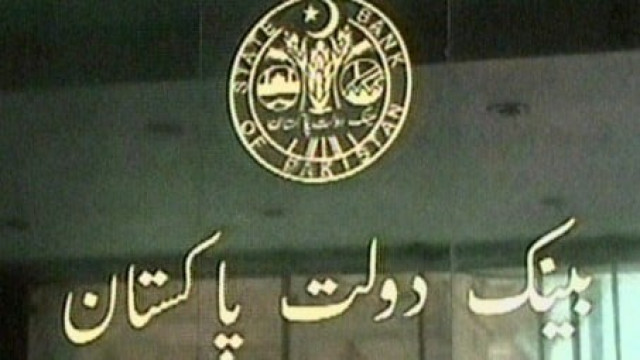Under observance: SBP orders review of charities’ accounts
Financial institutions told to follow strict vigilance guidelines.

In a sudden move, the central bank has issued fresh instructions to financial institutions to maintain strict vigilance over non-governmental organisations (NGOs) and charities – and ordered that a complete review of all such organisations’ accounts be undertaken and completed before the end of this financial year.
Financial institutions have been warned that failure to follow the new guidelines over the financial activities of these organisations would result in legal action by the banking authorities.
The State Bank of Pakistan (SBP) on Monday issued a policy and regulations circular regarding financial institutions’ required compliance to new guidelines in order to “protect” them from the risks of money laundering and terrorist financing activities.
The regulations are binding on all financial institutions under the Banking Companies Ordinance 1962. The institutions have been warned of “appropriate legal action” in case of non-compliance.
In accordance with the SBP’s Banking Policy and Regulations Department Circular No4 (2012), banks and development financial institutions (DFIs) have been instructed to conduct “enhanced due diligence” and obtain senior management approval prior to establishing a relationship with any NGO or not-for-profit organisation (NPO) or charities. Institutions will also be required to ensure that all transactions related to such accounts comply with the stated objectives of their operating entities.
All financial institutions are further required to open accounts only in the name of the relevant NGO or NPO, as per the title given in the documents submitted by the entity. Those authorised to operate these accounts, along with members of the governing body of the applicant organisation, will be subject to Customer Due Diligence and scrutinised for any involvement in proscribed organisations or relationship to suspicious individuals. All NGOs and NPOs – and their operatives – will be reviewed for any involvement in suspicious activities by June 30, 2012, and reported for legal action if required, according to the circular.
Furthermore, in case an organisation advertises its account number for soliciting donations or similar purposes, financial institutions are required to immediately flag the account and file a Suspicious Transaction Report if necessary in the condition that the advertising party’s account title is not found to be in correspondence to the account number publicised.
In addition, the circular notifies that personal accounts can no longer be used legally to collect charity or donations.
The circular also details documentary requirements that NGOs and NPOs must fulfill in order to be able to avail the services of financial institutions.
The new guidelines require financial institutions to finalise arrangements by mid-April for training programmes to be used in the education of staff so that all operatives may be able to recognise and thwart any illegal use of the financial services.
Published in The Express Tribune, March 13th, 2012.



















COMMENTS
Comments are moderated and generally will be posted if they are on-topic and not abusive.
For more information, please see our Comments FAQ